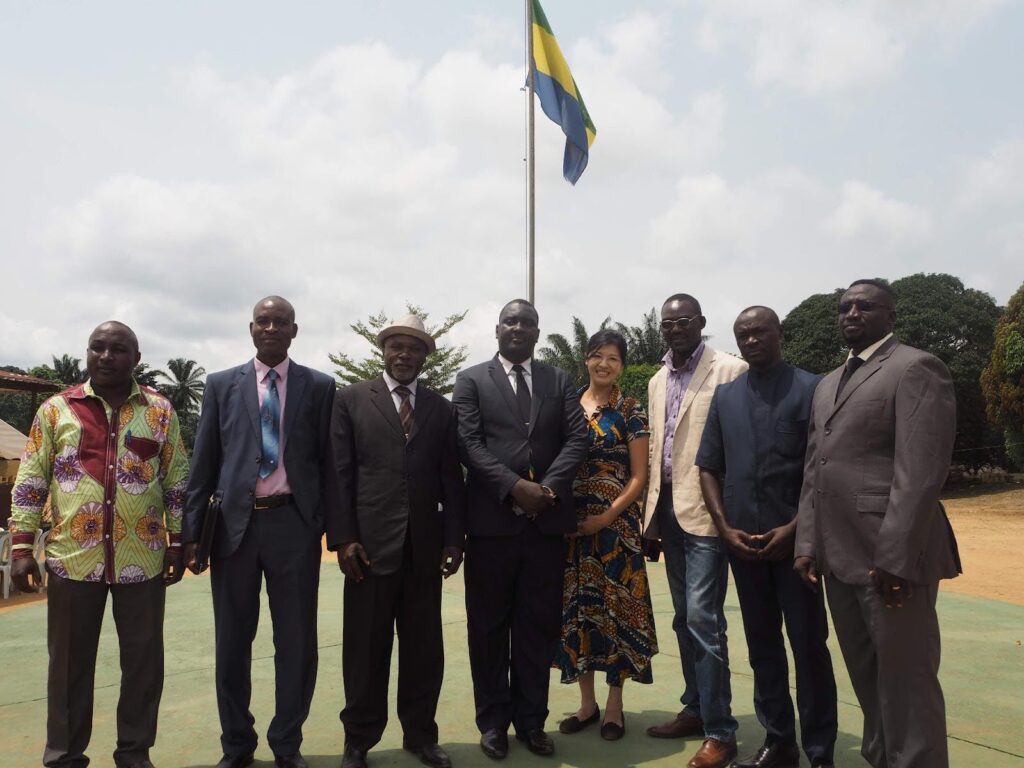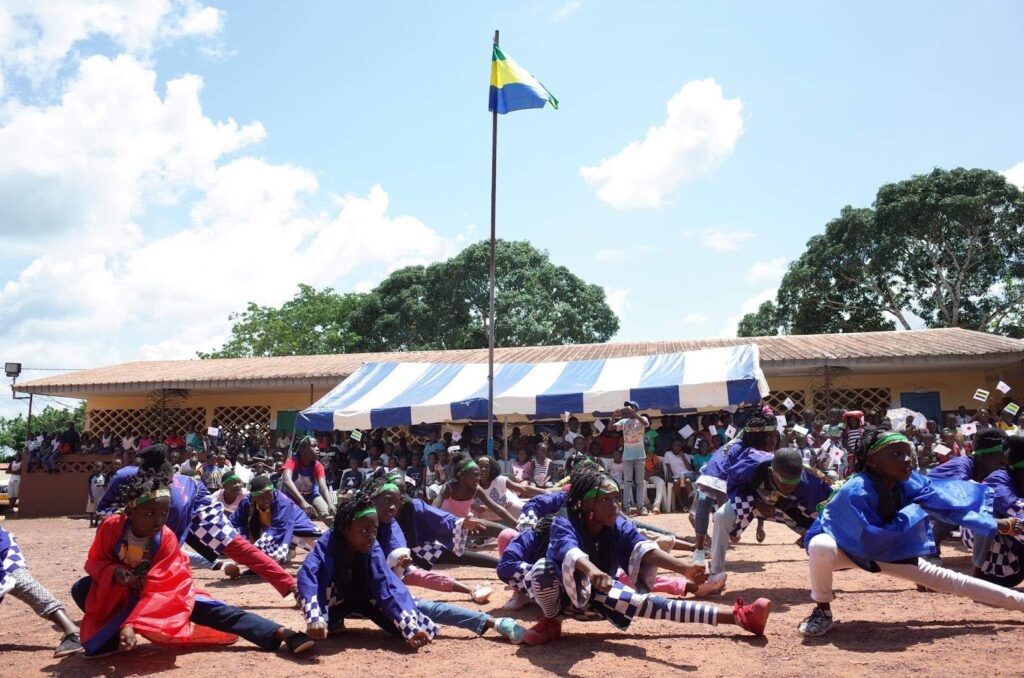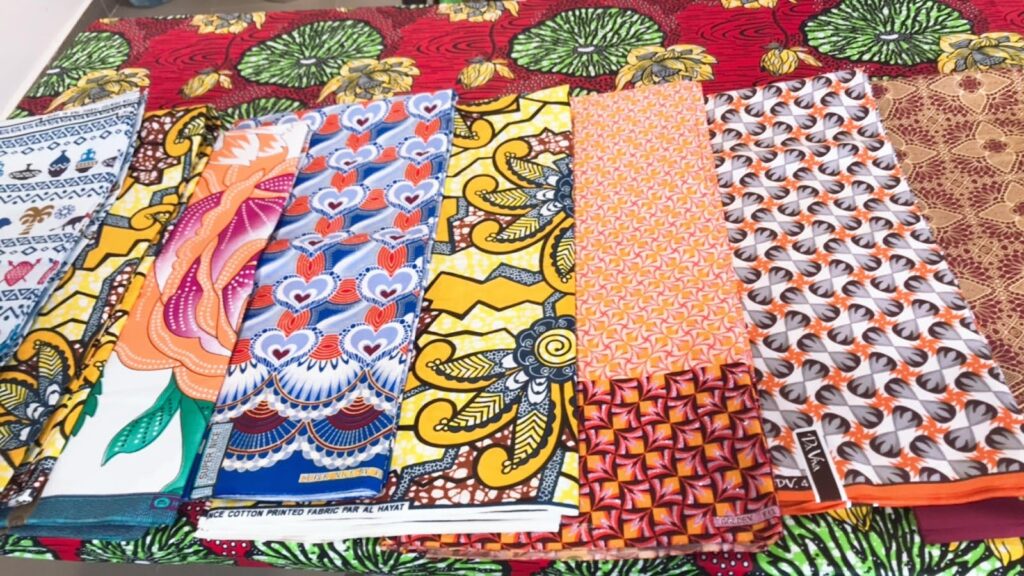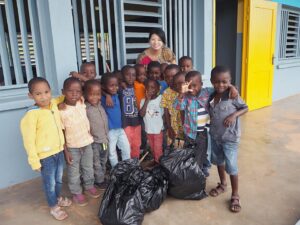Graduation season is upon us, and I'm sure there are many new graduates embarking on a career in childcare.
This time, we will introduce a lecture that Mr. Sugimoto, the director of Shokoji Nursery School Yoshidamachi, who also served as a member of the Japan Overseas Cooperation Volunteers and has experience in early childhood education in Africa, gave last year at his alma mater, Kamakura Women's University.
Kamakura Women's University, which will celebrate its 80th anniversary in 2023, is a university that provides education to prepare students for professions that require licenses, qualifications, and highly specialized skills, such as kindergarten teachers and childcare workers.
Professor Sugimoto, whose alma mater is Kamakura Women's University, was dispatched to the Republic of Gabon as a member of the Japan Overseas Cooperation Volunteers from 2018 to 2020. Drawing on his experience, he gave a lecture on the theme of "Founding Spirit."

Approximately 150 people attended, including many students.
From here, I would like to give a brief introduction to the contents of the lecture.
When she was in high school, Sugimoto participated in an international exchange camp. She has always had an interest in overseas countries, and in addition to traveling abroad, she has also interned at a Japanese kindergarten in Thailand, conducted a study tour of Uganda, and volunteered at a Mother Teresa facility in India.

After graduating from university, I got a job as a kindergarten teacher, but I wanted to make use of my experience abroad, so I decided to pursue a career in international cooperation through the Japan Overseas Cooperation Volunteers. Since I majored in French at university, I was sent to the Republic of Gabon, where French is the native language.
While in the country, we promoted emotional education (art, music, physical education) by holding training sessions at local educational institutions and helping to create local educational curricula, as well as by introducing Japanese culture (geography, greetings, calligraphy, origami, etc.).

Another major event was the Gabonese-style sports day that was held twice during my two-year stay.
After repeated practice with the children, they participated in competitions such as radio calisthenics, a big-pan race, a relay race, and tug-of-war, as well as a performance of the Soran Bushi song. In the Republic of Gabon, there are no events or opportunities for parents to see their children's growth, so we created a format that parents can also participate in. We thought that by providing an opportunity for parents to cheer on and enjoy the activities while the children happily participate, it would be a place where parents can share and empathize with their children's growth.

In addition to the different childcare environment, you will also be faced with cultural differences.
It may seem surprising, but in the Republic of Gabon, when something breaks or needs a new one, it is normal to replace it or buy a new one rather than repair it so that it can still be used. In addition, there is no habit of cleaning or tidying up, so when I was first dispatched, the classrooms were full of trash. Before carrying out my main activities, I first cleaned up my surroundings, so I spent three minutes cleaning before class started and made it a habit.
Even if we know that we should clean and reuse things on a daily basis, there may be situations where it is difficult to do so, but in the Republic of Gabon, people did not know why they should clean or how to reuse things. Rather than deciding which is right or wrong based on differences in culture or sociality, they started their activities by accepting the "differences" between Japan and Gabon.
How to approach cultural differences without forcing things on others was a major challenge, but also the appeal of this activity.
In particular, local ideas about food, clothing and shelter are very different from those in Japan. For example, the vivid designs of clothing and the meanings they convey are very different from Japanese culture.

In Japan, it is generally recommended that work attire be simple and subdued, but in other countries it is considered good to wear flashy attire, and for women to wear high heels and bright skirts when teaching, and is seen as a sign of being a great teacher.
By the way, this time Professor Sugimoto gave her lecture wearing a vibrant dress that she had made locally.
In those countries, so-called casual clothes like those worn in Japan are very expensive, so in other countries, people go to a tailor, buy fabric, and order clothes in their favorite design that fit their measurements. Even one piece of clothing can make such a difference. Incidentally, these tailored clothes with patterns and bright colors that are unfamiliar to Japan are considered formal wear in other countries.
At the end of the lecture, a video was shown of a sports day held in the Republic of Gabon.
The video showed the children performing the Soran Bushi dance that they had practiced extensively, and the students listening to the lecture couldn't help but cheer.
Professor Sugimoto talks about his two-year experience as follows:
"What is normal for you is not normal for the other person." I grew up in Japan and received a Japanese education. There are many rules in Japan, and I grew up with my own common sense (normality). In the same way, other countries also have rules and regulations. That is intercultural understanding.
It's not a matter of who's right or wrong, but understanding each other's "differences" (and also understanding that we can't understand each other) and coming to an understanding that will deepen our bond. It may take a lot of energy and time, but it is essential to face each other in order to know and respect each other. I think that going through this process allows us to see the children's future growth and connect with them.
After graduating from university, Director Sugimoto has been involved in childcare in various ways. We hope that this lecture will give young students an opportunity to think about their future student life and how they can approach childcare.



